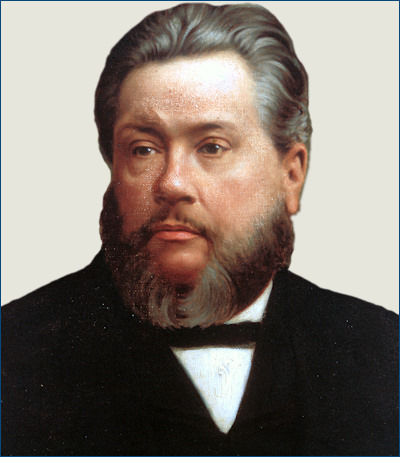posted by Phil Johnson

The PyroManiacs devote some space each weekend to highlights from The Spurgeon Archive. The following excerpt is from "Flee from the Wrath to Come," a sermon preached on Sunday evening, 23 October 1881, at the Met Tab in London.
 onsider the question of John the Baptist: "When he saw many of the Pharisees and Sadducees come to his baptism, he said unto them, O generation of vipers, who hath warned you to flee from the wrath to come?"
onsider the question of John the Baptist: "When he saw many of the Pharisees and Sadducees come to his baptism, he said unto them, O generation of vipers, who hath warned you to flee from the wrath to come?"I have no doubt that the Pharisees and Sadducees were very much surprised to hear John addressing them in that way; for men who wish to win disciples, ordinarily adopt milder language than that, and choose more attractive themes, for they fear that they will drive their hearers from them if they are too personal, and speak too sharply.
There is not much danger of that nowadays, for the current notion abroad now is that gospel ministers can sew with silk without using a sharp needle; and that, instead of piercing men with the sword of the Spirit, they should show them only the hilt of it; let them see the bright diamonds on the scabbard, but never let them feel the sharpness of the two-edged blade. They should always comfort, and console, and cheer, but never allude to the terror of the Lord.
That appears to be the common interpretation of our commission; but John the Baptist was of quite another mind.
There came to a him a Pharisee, a very religious man, one who observed all the details of external worship, and were very careful even about trifles, a firm believer in the resurrection, and in angels and spirits, and in all that was written in the Book of the law, and also in all the traditions of his fathers, a man who was overdone with external religiousness, a Ritualist of the first order, who felt that, if there was a righteous man in the world, he certainly was that one.
He must have been greatly taken aback when John talked to him about the wrath of God, and plainly told him that that wrath was as much for him as for other people. Those phylacteries and the broad borders of his garment, of which he was so proud, would not screen him from the anger of God against injustice and transgression; but, just like any common sinner, he would need to "flee from the wrath to come."
I daresay that the Sadducee was equally taken aback by John's stern language. He, too, was a religious man, but he combined with his religion greater thoughtfulness than the Pharisee did;—at least, so He said. He did not believe in traditions, he was too large-minded to care about the little details and externals of religion. He observed the law of Moses, but he clung rather to the letter of it than to its spirit, and he did not accept all that was revealed, for he denied that there was such a thing as an angel or a spirit. He was a Broad Church-man a man of liberal ideas, fully abreast of the age. He professed to be a Hebrew of the Hebrews; yet, at the same time, the yoke of religion rested very lightly upon his shoulders. Still, he was not irreligious; yet here is John the Baptist talking to him, as well as to the Pharisee, about "the wrath to come."
They would both have liked to have a little argument with him, but he talked to them about fleeing from the wrath to come. They would both have been pleased to discuss with him some theological questions, and to bring up the differences between their two sects, just to hear how John would handle them, and to let them see which way he would lean.
But he did not waste a moment over the matters in dispute between Pharisees and Sadducees; the one point he had to deal with was the one of which he would have spoken to a congregation of publicans and harlots, and he spoke of it in just the same way to these nominally religious people. They must "flee from the wrath to come;" or else, as surely as they were living men, that wrath would come upon them, and they would perish under it.
So John just kept to that one topic; he laid the axe to the root of the trees as he warned these hypocritical professors to escape for their lives, else they would perish in the common destruction which will overwhelm all ungodly men.
This was not the style of preaching that John's hearers liked; but John did not think of that. He did not come to say what men wished him to say, but to discharge the burden of the Lord, and to speak out plainly what was best for men's eternal and immortal interests. He spoke, therefore, first, concerning the wrath of God; and, next, he spoke concerning the way of escape from that wrath.












3 comments:
I thinketh Mr. Bell would be very dismayed at Pastor Spurgeon for supposedly driving people away from the arms of Jesus. Of course, our Emergent friends are always perpetually dismayed these days.
This is how we show love to the lost. May we all be encouraged to show the lost how much God loves us.
The truth tickles only the ears of those who are persuaded to Christian devotion by the Holy Spirit. It is the teacher who has no confidence in God who tries to persuade by his own style to the exclusion of necessary substance. But what is the goal of his persuasion? Mere participation rather than devotion.
Post a Comment